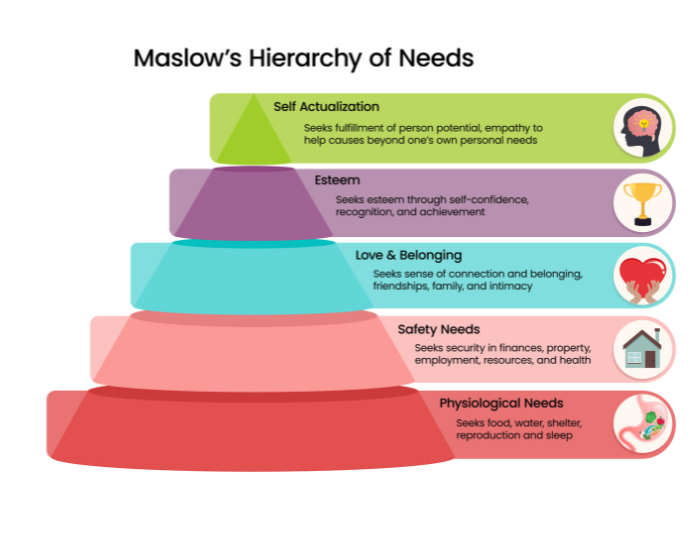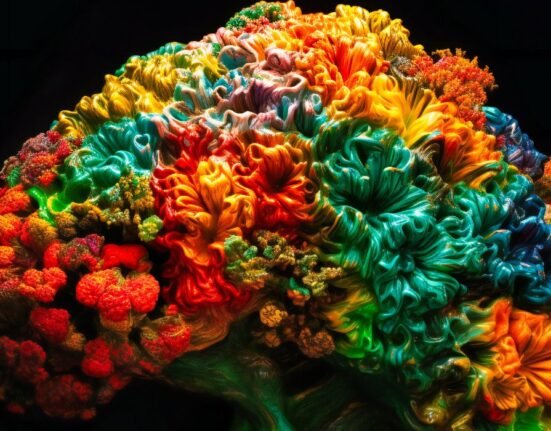It would be foolish to think that politics is just about policy and governance; it deeply influences how people view themselves and their place in the world. A 2020 Pew Research Center study found that 78% of U.S. adults say their political affiliation is a core part of their identity, with many feeling that their political beliefs are deeply connected to their values and how they see themselves. Similarly, a 2019 Lokniti-CSDS survey in India showed that 60% of voters believe their social identity influences their political choices, reflecting how deeply intertwined politics is with personal identity in India.
But what does a sense of self indicate, and how does it relate to politics?
Sense of self is the cornerstone of our identity, the essence that allows us to define who we are about others. It’s shaped by the integration of our preferences, beliefs, values, and personality traits, all of which come together to form a cohesive understanding of ourselves.
Politics and political ideologies are deeply embedded within this sense of self. Our political beliefs often influence the way we perceive and evaluate ourselves, shaping not only our worldview but also our self-concept. In a politically charged environment, these ideologies can become integral to our identity, affecting how we see ourselves and how we interact with the world around us.
Explore Further: What is Political Psychology?
Political parties are not just about ideas, they are about feelings. They create a sense of belonging, a sense of community, and a sense of purpose.
David Brooks
This quote articulates a fundamental point – political parties are not just organisational entities, they fulfil a personal and collective sense of purpose and belonging. They shape the emotional landscapes and help forge a sense of belongingness. They help build a tight-knit community, bound by shared values and goals. It fulfils a psychological need for purpose. When one associates with a political party, they not only align themselves with a particular political ideology but also find camaraderie and solidarity with other members.
Does Maslow’s Hierarchy of Needs explain this?
Once basic needs for hunger, thirst, and safety are fulfilled, the need for belongingness emerges. Humans are inherently social beings, and to make sense of ourselves, we need to interact with others and find the company of like-minded individuals.
In our quest for social connections, love, and belonging, we find meaning in political parties and ideologies that resonate with us. This fosters a sense of inclusion and acceptance. Today, in a world that transcends physical distance, a simple like or follow on a post about a recent political event on X from someone miles away can effectively fulfil this need for belonging, even if that person is a stranger.
This sense of belonging then leads to the fulfilment of esteem needs. Esteem needs involve receiving recognition from others, which relates to one’s self-worth and how one perceives oneself. When someone affiliates with a political cause and receives praise or appreciation for their contributions, it can enhance their self-worth and how others view them.

In a study conducted by A. Cichocka and colleagues, Maslow’s concept of self-actualization and its relation to politics was explored. The study elaborated on how self-actualization, the highest level of psychological development, is connected with the motivation for engagement and activism. Self-actualization involves reaching one’s highest potential, pursuing one’s goals, and aligning those goals with one’s values and sense of purpose.
In the political realm, self-actualized individuals are more likely to engage in political activities that reflect their values and aspirations. They are more likely to participate in activism, advocacy, and democratic processes. Those with high self-esteem, who feel secure in their self-worth, are particularly inclined to take on these roles, believing in their ability to effect change and contribute to the common good.
According to Maslow, one of the core motives held by individuals is the need for positive self-regard. When individuals feel good about themselves, they are more likely to engage in generally positive behaviour, even in political contexts.
This need is so fundamental that it guides much of our behaviour. The study found that those with a good sense of self or high self-esteem were more likely to participate in political discussions, advocate for social causes, and support democratic values. Conversely, individuals with low self-esteem were more likely to struggle with political engagement or be drawn to extremist ideologies as a way to bolster their self-image. Maslow’s hierarchy of needs thus underscores the importance of self-evaluation in shaping personal identity and political dynamics.
Social Identity Theory
With an understanding of self-identity and how Maslow’s theory offers an explanation, a recurrent notion that emerges is ideological alignment and group identity. It is often from the groups we belong to that we derive our sense of self.
Social Identity Theory (SIT) originated in the early 1970s using the minimal group paradigm. These studies helped illustrate people’s inherent desire to distinguish themselves from others based on their group membership. SIT suggests that it is natural for us to categorize our social world. This categorization helps us simplify the environment. Categorizing people into different groups becomes innate to our human nature. While categorizing others into different groups, we also categorize ourselves into certain groups, identifying with them—this process is known as social identification.

In the political context, individuals automatically categorize themselves and others into political groups and ideologies—Conservative, Liberal, Leftist, and Nationalist being some examples. As postulated by Social Identity Theory, this categorization enables an easier understanding of the complex political environment, allowing individuals to make sense of their political world by associating themselves and others with a political ideology or group.
Once this categorization occurs and individuals classify themselves as part of a group—their ingroup—this affiliation becomes an inextricable part of their identity. For example, in India, individuals who associate themselves with the Bharatiya Janata Party (BJP) might strongly identify with Hindu Nationalism and express themselves accordingly by wearing the colour saffron; this becomes an intrinsic part of their identity. On the other hand, those who associate with the Indian National Congress might refer to themselves as Congress and align themselves with the party’s goals of inclusion and secularism.
Deriving such a strong sense of identity from political parties often leads to the development of feelings of ingroup and outgroup. While these effects can be both positive and negative, they usually lead to prejudices, where the ingroup, while working constructively for itself, may work against the outgroup, sometimes even at the cost of the outgroup’s well-being.
Overall, this theory helps us understand that, in the face of uncertainty and complexity, seeking a sense of identity through political affiliations helps one feel at ease. It provides a strategy to reduce uncertainty and helps individuals build a distinct sense of self. Political leaders and social media play important roles in this process.
Leaders and Social Media
An extension of Social Identity Theory, the Social Identity Theory of Leadership explains how leaders dictate the norms of the ingroup. Leaders serve as prototypes, creating and practising the norms that other members must follow. They provide structure to the ingroup and embody the values and ideals that members wish to identify with. A study on this found that as leaders increase their distinctiveness and superiority, individuals feel a stronger sense of identification with the group.
The role played by media is pivotal. Researchers have long established that media contributes to political polarization. However, the role it plays in terms of the general public is that of fostering affective polarization. Media makes individuals feel a strong sense of liking towards their ingroup and disliking towards their outgroup.
Media framing popularly achieves this. The way the media presents a particular story has a significant influence. Media outlets often frame political issues in ways that resonate with the values and beliefs of specific political groups. Media framing can reinforce group identity by highlighting issues that align with the ingroup’s values while marginalizing opposing viewpoints.
Explore Further: Cognitive Dissonance Theory by Leon Festinger
Cognitive Dissonance
As postulated by Leon Festinger, this theory suggests that individuals contain within themselves multitudes of cognitions. They seek to maintain consistency among these cognitions. To achieve this, they may alter an existing cognition to better fit the other existing cognitions.
Thus, individuals always strive to achieve consistency to reduce the discomfort caused by conflicting beliefs. When faced with challenging or opposing political views that threaten their identity, individuals will try to stabilize their identity by becoming more entrenched in their existing political views and dismissing any opposing or conflicting views. This effectively demonstrates the relationship between politics and the sense of self.
In conclusion, politics significantly influences our sense of self, intertwining with our identity in various ways. It shapes our quest for belonging and self-esteem, simplifies the complexity of our social world through categorization, and is influenced by leaders and media. Additionally, when faced with conflicting views, we often cling to our political beliefs to preserve our self-identity. Thus, politics plays a central role in shaping and maintaining our sense of self.
References +
Hogg, M. A., & Abrams, D. (2020). Social Identity Theory. ResearchGate. https://www.researchgate.net/publication/342158060_Social_Identity_Theory
Michael A. Hogg, Daan van Knippenberg & David E. Rast III (2012) The social identity theory of leadership: Theoretical origins, research findings, and conceptual developments, European Review of Social Psychology, 23:1, 258-304, DOI: 10.1080/10463283.2012.741134 http://dx.doi.org/10.1080/10463283.2012.741134
Kubin, E., & von Sikorski, C. (2021). The role of (social) media in political polarization: a systematic review. Annals of the International Communication Association, 45(3), 188–206. https://doi.org/10.1080/23808985.2021.1976070
Festinger, L. (2015). Cognitive dissonance theory. In G. Ritzer (Ed.), The Blackwell Encyclopedia of Sociology (pp. 1-4). John Wiley & Sons. https://doi.org/10.1002/9781405165518.wbeosc058.pub2
Cichocka, A., Marchlewska, M., & Cislak, A. (2023). Self-worth and politics: The distinctive roles of self-esteem and narcissism. Political Psychology, 44(5), 1125-1140. https://doi.org/10.1111/pops.12897













Leave feedback about this